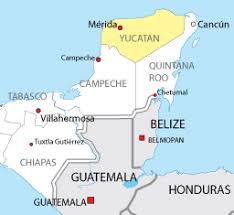
The City of MERIDA in the YUCATAN PENINSULA, is one of the most picturesque cities in Mexico.
History
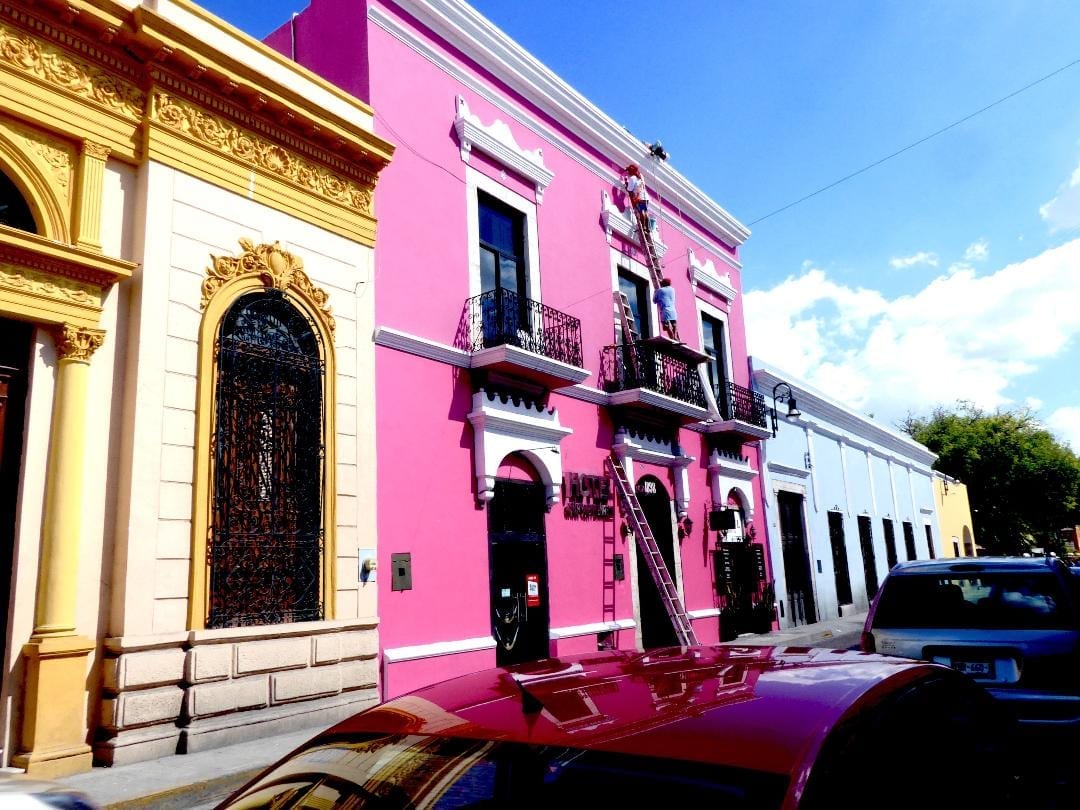
Merida, the Yucatan Capital as well as the largest city of the Yucatan Peninsula is in the heart of the Yucatan. Located in the North Western corner, two hundred miles West of Cancun. The two Cities could not be more different.
While Cancun is glitz and glamour, Merida is more cultured and tasteful. It has opera and ballet performances, a symphony orchestra, the Museum of Modern Art, jazz concerts, historically relevant public buildings and an exotic and unique food culture.
Merida was twice declared the American Capital of Culture in recognition of its vibrant culture. With waves of immigrants since the mid 1850’s, beginning with the Spanish Conquistadors, there are Mayan, Spanish, French, Italian, British and Lebanese influences and it is a blending of all these cultures, with a stronger “portion” of Mayan.
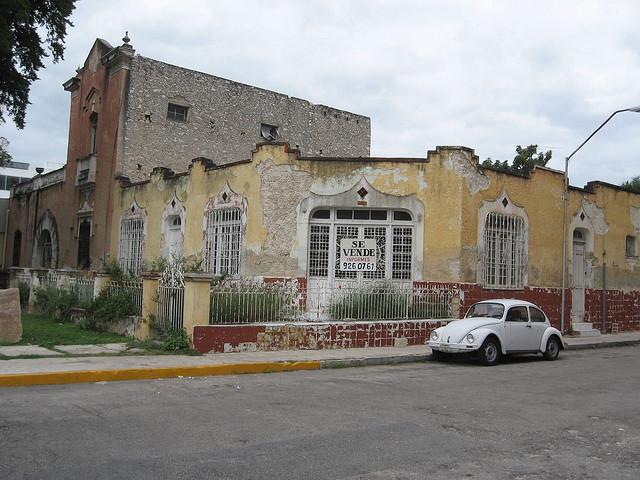
The historic center of Merida is architecturally rich and has one of the largest concentrations of colonial homes outside of Mexico City. Walk down any street in the historic center of Merida and it is in a state of renewal.
Many houses have been restored but there are still several undergoing restorations. It is a work in progress. Workmen can be seen carrying building materials and there are step ladders propped up against houses being painted in varying jewel tones.
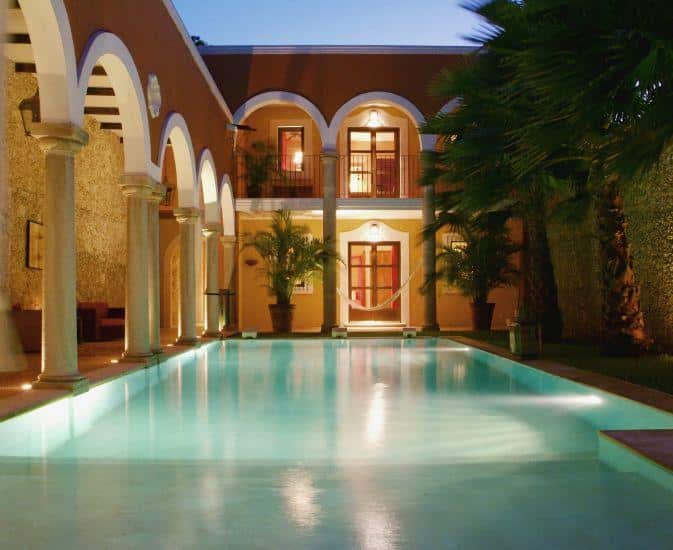
The Boom Times
The original houses, dating from the mid 1850’s, were built by wealthy growers of the Agave plant, whose pointed fleshy leaves were turned into sisal or rope. This coincided with industrial growth in the United States where rope was in demand. Most of the production was exported to the US.
It is hard to believe, but the sisal sales and exports made Merida the wealthiest part of Mexico at the time enabling the growers to invest their new wealth into opulent homes, several designed by architects from Paris and furnished with antiques and furnishings from Europe.
At the end of their rope
What seemed like a never-ending flow of money came to an end in the 1930’s, when sisal was replaced with nylon rope (invented in 1935 at DuPont in Wilmington, Delaware). The sisal growers were caught unawares, and without a plan to replace their lost income, they could no longer afford to build or support these large homes.
Thus, began a slow road to decline as the economic prosperity disappeared.
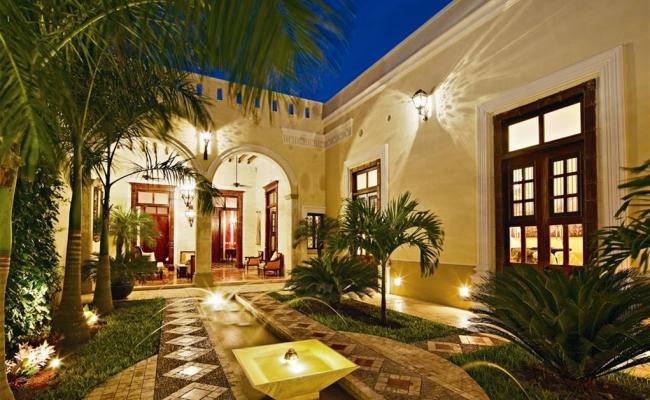
Most of the homes were abandoned and left to languish until about the late 1990’s. A few investors, mainly architects, designers and artists. recognizing the historic and cultural potential of these “sleeping beauties” began buying up a few of the homes at rock bottom prices – at that time, no one was interested in acquiring them.
The restorations required labor and local artisans were happy to have the work and use their artisanal skills in restoring the homes to their original grandeur. Word got out and more and more of these homes were sold and restored, attracting a combination of affluent investors and homeowners as well as artists and bohemians.
Another Renaissance for Merida
Soon enough, the international magazines and newspapers were featuring Merida as an up and coming place, heralding a revival.
Walk down the cobble stone streets today, and one can admire rows of restored colonial homes, reminiscent of another era, their walls bursting with color, painted all shades of the color spectrum.
The interiors are once again as beautiful as the exteriors, having been furnished with authentic colonial furnishings, their architectural details highlighted by contrasting paint colors. Prices of these houses have moved up accordingly now that investors can see their potential.
Many of them have become boutique hotels. Antique stores have opened, selling the antiques that came out of many of the homes and Merida has become known as a place to buy antiques. A number of shops are selling local high-end crafts. There are fashion stores and Galleries. Restaurants are everywhere, serving authentic Yucatan and international food. There are bakeries, cooking schools, chocolatiers and coffee shops to attract tourists and benefit the economy.
Some of the investors have bought homes and restored them purely for rental purposes, bringing in guests who prefer to live in an authentic Colonial home rather than go to a hotel. This then is the march of progress that has come to the languid and forgotten city of Merida, forgotten no more.
COQUI COQUI PERFUMES, SPAS AND RESIDENCES OF MERIDA.
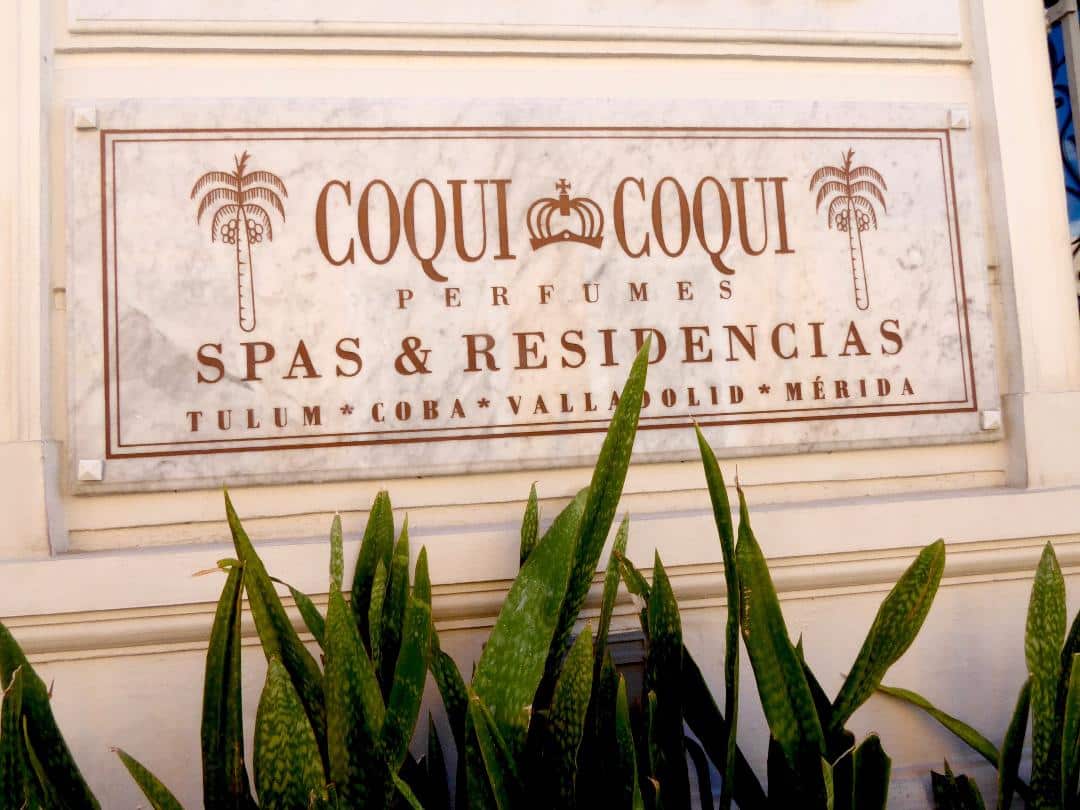
Coqui Coqui Perfumes, Spa and Residences is a prime example of a sophisticated company opening its doors in the restored Colonial neighborhood of Merida. Coqui Coqui is located on a typical street with restored colonial houses, painted in jewel tones with beautiful doors and architectural details.
Almost every published article and website about Merida, mentions Coqui Coqui. And so, I set off to see for myself what all the accolades were about. Not too far from the Center of the historic district, I came to a marble plaque with the words:
“COQUI, COQUI | PERFUMES SPA AND RESIDENCE | TULUM, COBA, VALLIDOD, MERIDA”

Uninvited, I edged the door open and hoped someone would come out to greet me – and that is what happened. I introduced myself and asked the assistant if she would give me a tour of the showroom and a sampling of the perfumes.And so, she did.
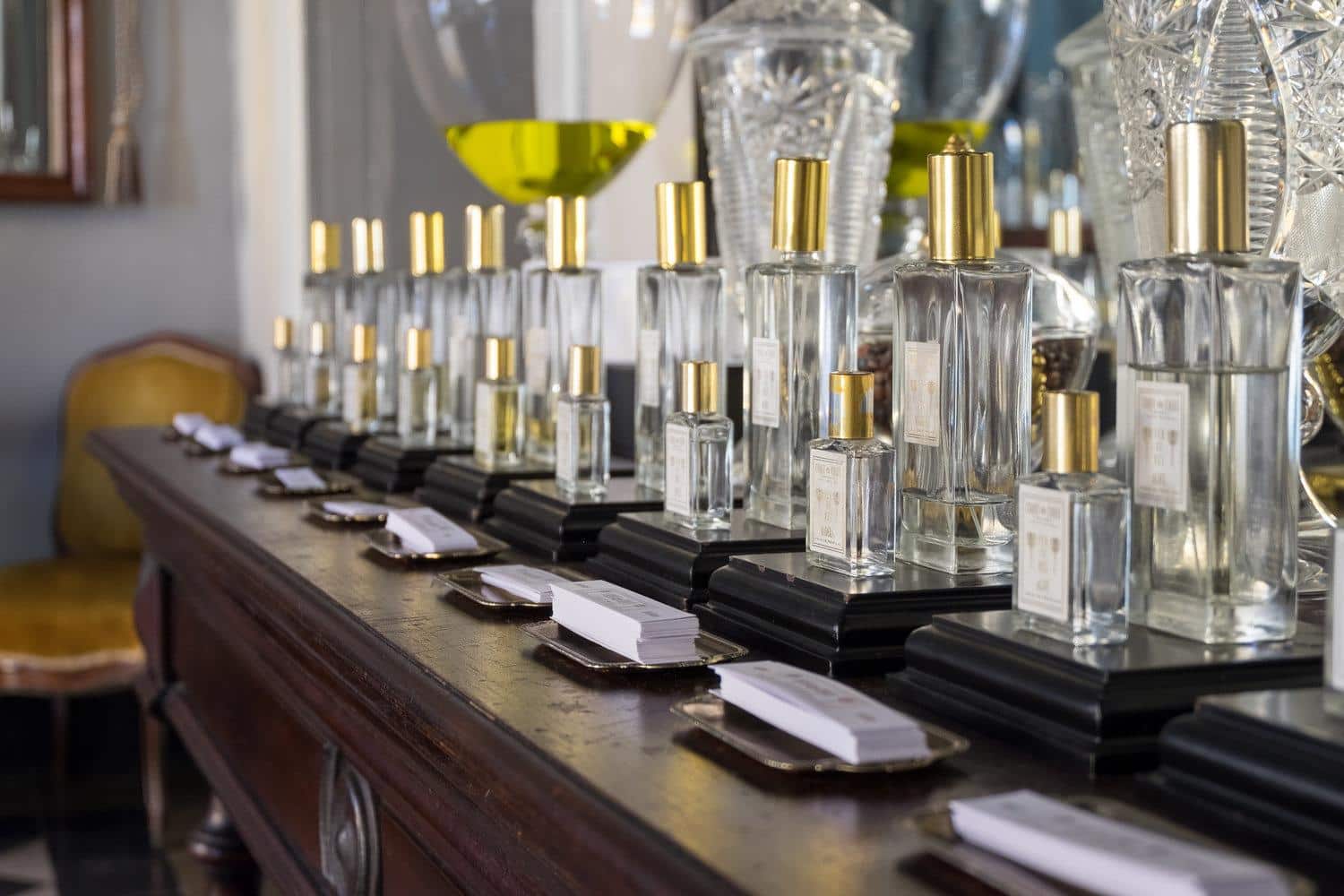
The perfumery was elegance personified and I thought I had been transported to Paris at the end of the Nineteenth Century. It was cool and refreshing inside, a contrast to the heat and traffic outside, and the perfumes were wafting in the air.
The building was a Belle Epoque house, Circa 1903, one of the homes built during the height of the Sisal economy. It had been impeccably restored and interior designed by Francesca Bonato.

There were black and white checkerboard marble floors, a crystal chandelier suspended from the high ceiling, mirrored display cases and rows of perfume bottles for sampling.
I was given little sampling papers with the names of different perfumes and was encouraged to sample. There were flower scents, and there were also masculine perfumes like tobacco and agave.
No one else was in the perfumery while I was there, and I had the pleasure of sampling as much as I wanted and discussing the perfumes with the “expert” in the showroom.

…and more
Adjacent to this was a small boutique selling a curated collection of local items that had been put together by Francesca Bonato, consisting of custom shirts, straw hats, scarves, items of interest to the international set that frequents Coqui Coqui.
The luxury suite
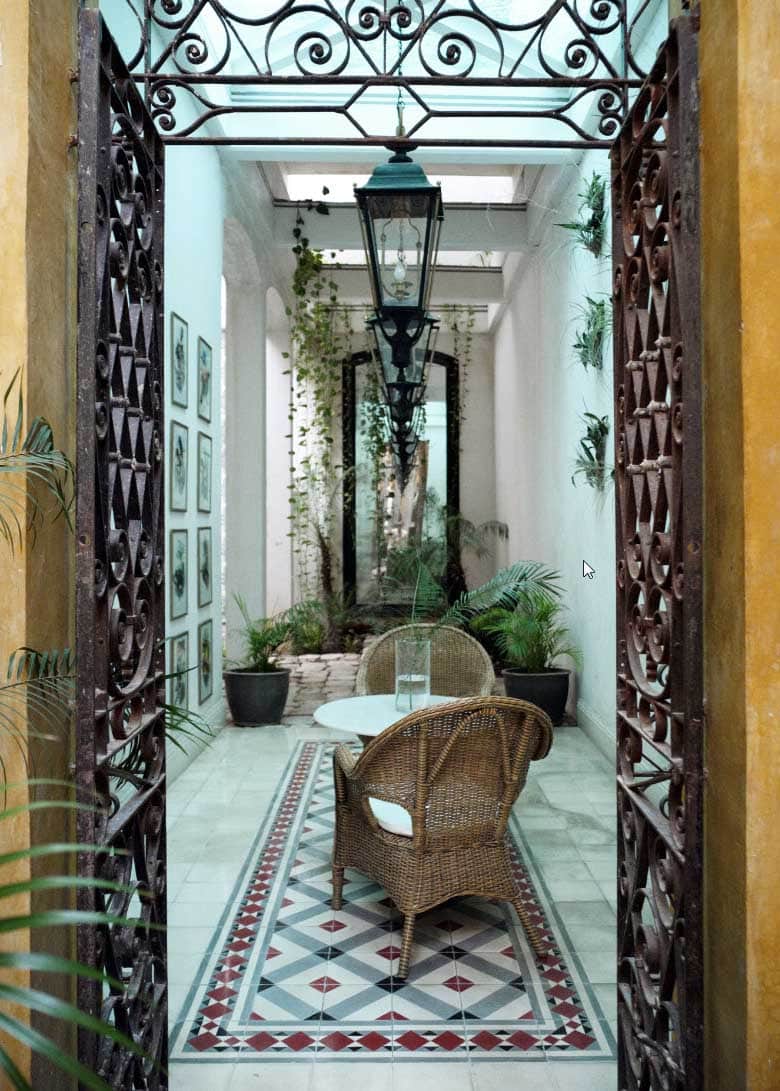
I walked up the antique staircase and found myself in a luxury, self-contained one-bedroom suite, ornately decorated in furnishings of the period.
There were 20-foot ceilings with suspended crystal chandeliers, large windows to let in the light, adorned with velvet drapes in jewel tones, “puddling” to the floor, burgundy upholstery, coffee table books, music and wi-fi. It also had a Nespresso machine for the convenience of the guests.
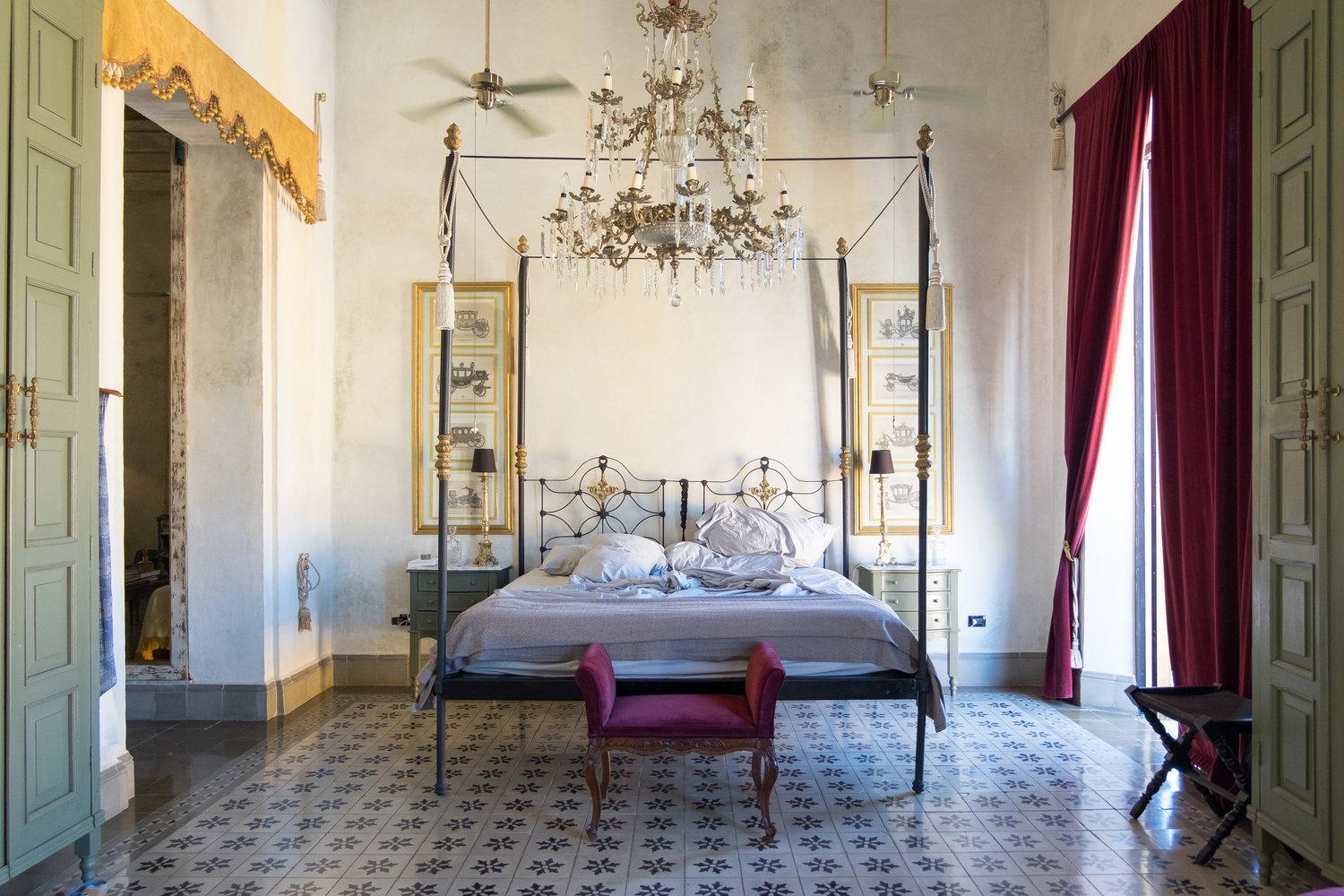
Breakfast was served upstairs and included the Coqui Coqui line of artisanal gourmet products.
The top floor terrace had lounging chairs and a glass bottomed pool plus a view of the surrounding colonial neighborhood. These are pictures of the upstairs one-bedroom suite that can be reserved:
The bedroom, with an antique canopied iron bed, fitted with the best linens. The floors were original, hand painted tiles.
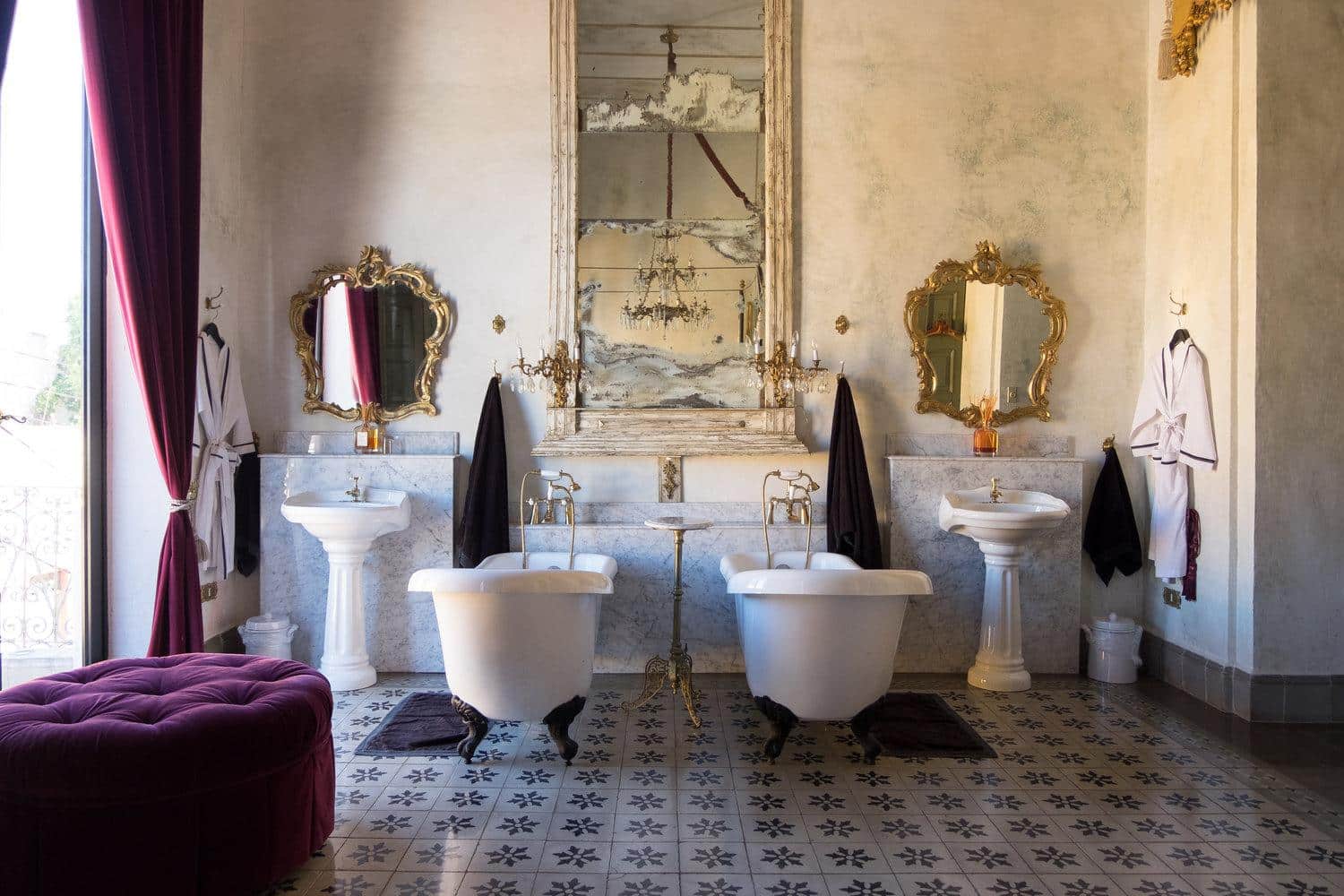
Off the bedroom was a bathroom, with twin footed baths, pedestal basins and luxurious towels.
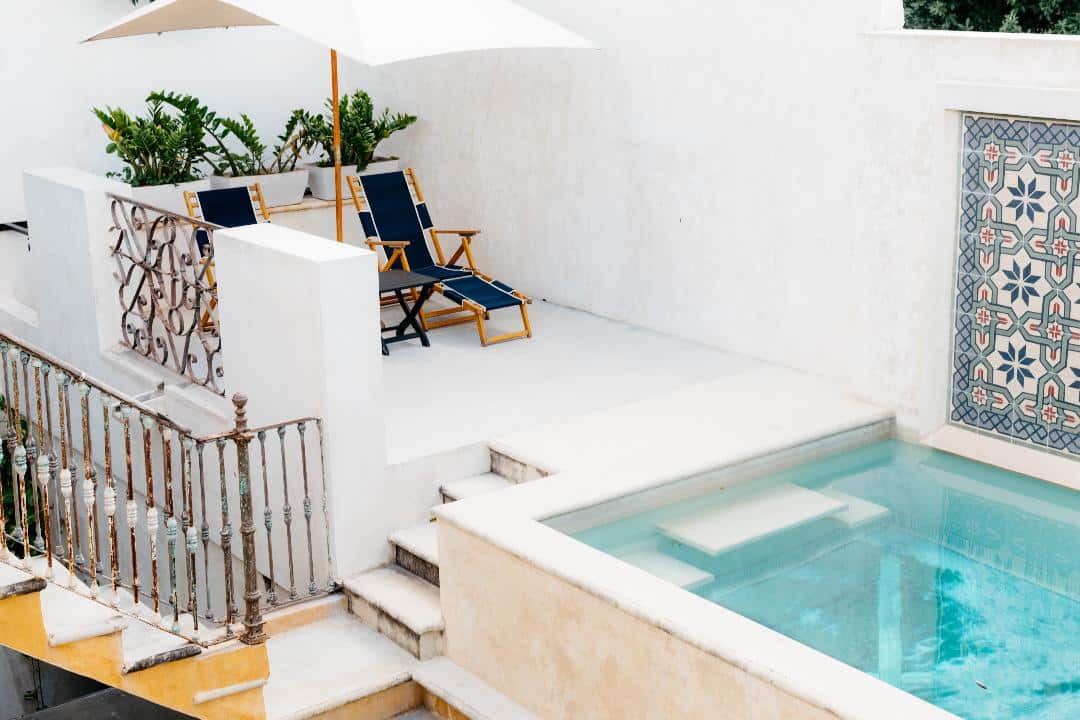
The swimming pool, and deck with lounging chairs.
Spa services are available.
After a peaceful night, breakfast is served upstairs when the staff hear the guests are awake.
In conclusion

This is the essence of the exclusive one-only suite at the Residence at Coqui Coqui, Merida – where you can be the only guests in this alluring Belle Epoque house, restored and furnished by Francesca Bonato, filled with the light fragrance of indigenous perfumes wafting through the air.
How unique is this experience!
If this appeals to you, make sure to reserve the space in time – there is only one suite in this Hotel.
Details:
- Coqui, Coqui, Perfumery, Spa and Residence.
- Address: Calle 55 516 entre Calle 62 y Calle 64, Centro, 97121 Mérida, Yucatan., Mexico
- Phone: +52 999 923 0216
- Price ranges from $325 – $360 per night depending on the season.
I want to acknowledge the images of Coqui Coqui supplied by the Company.

